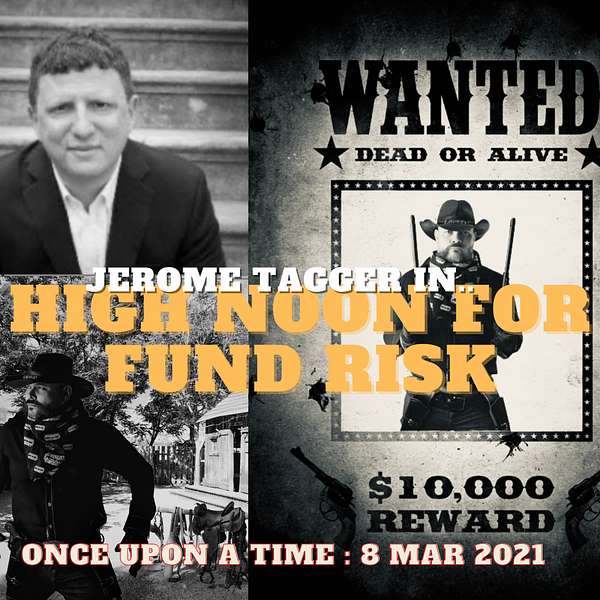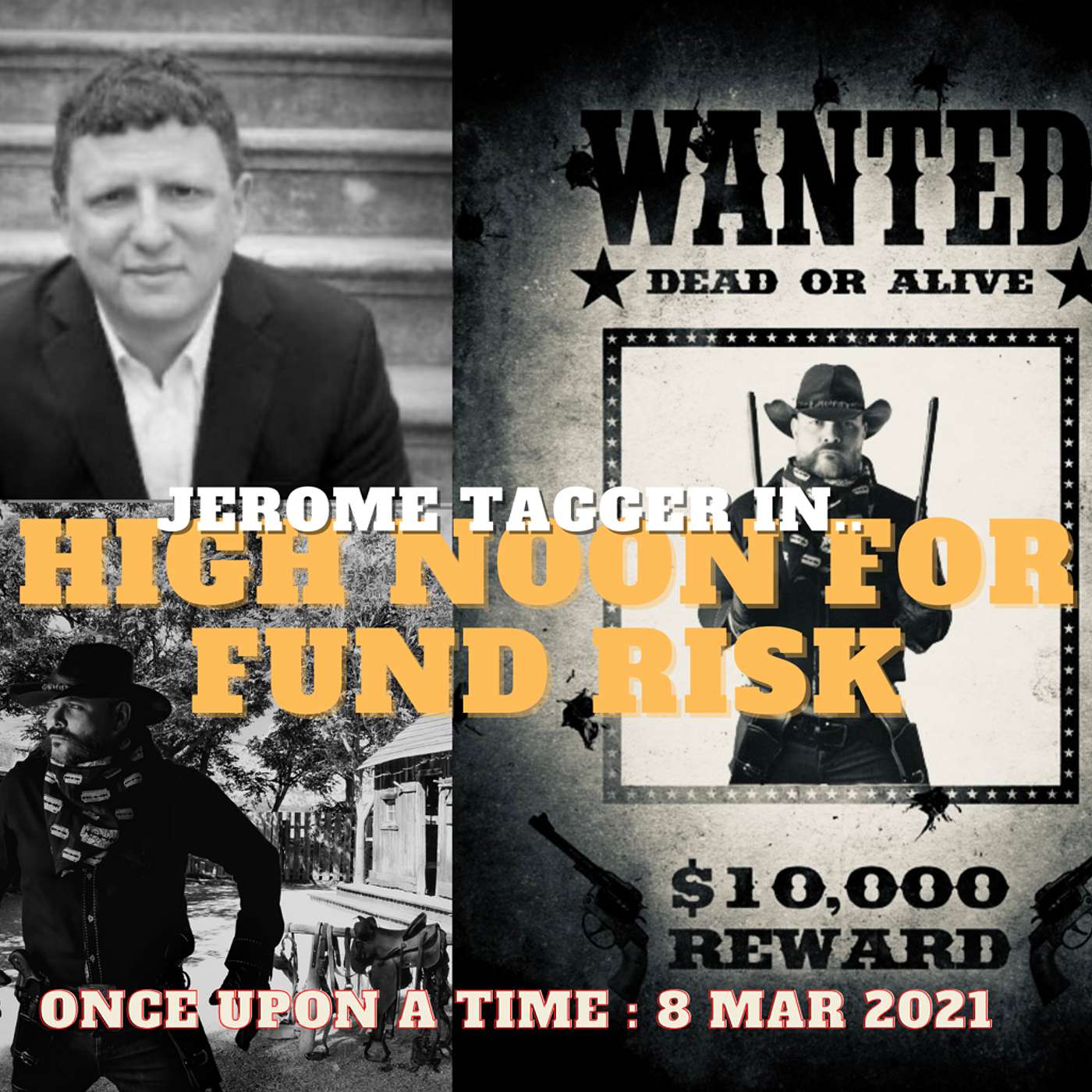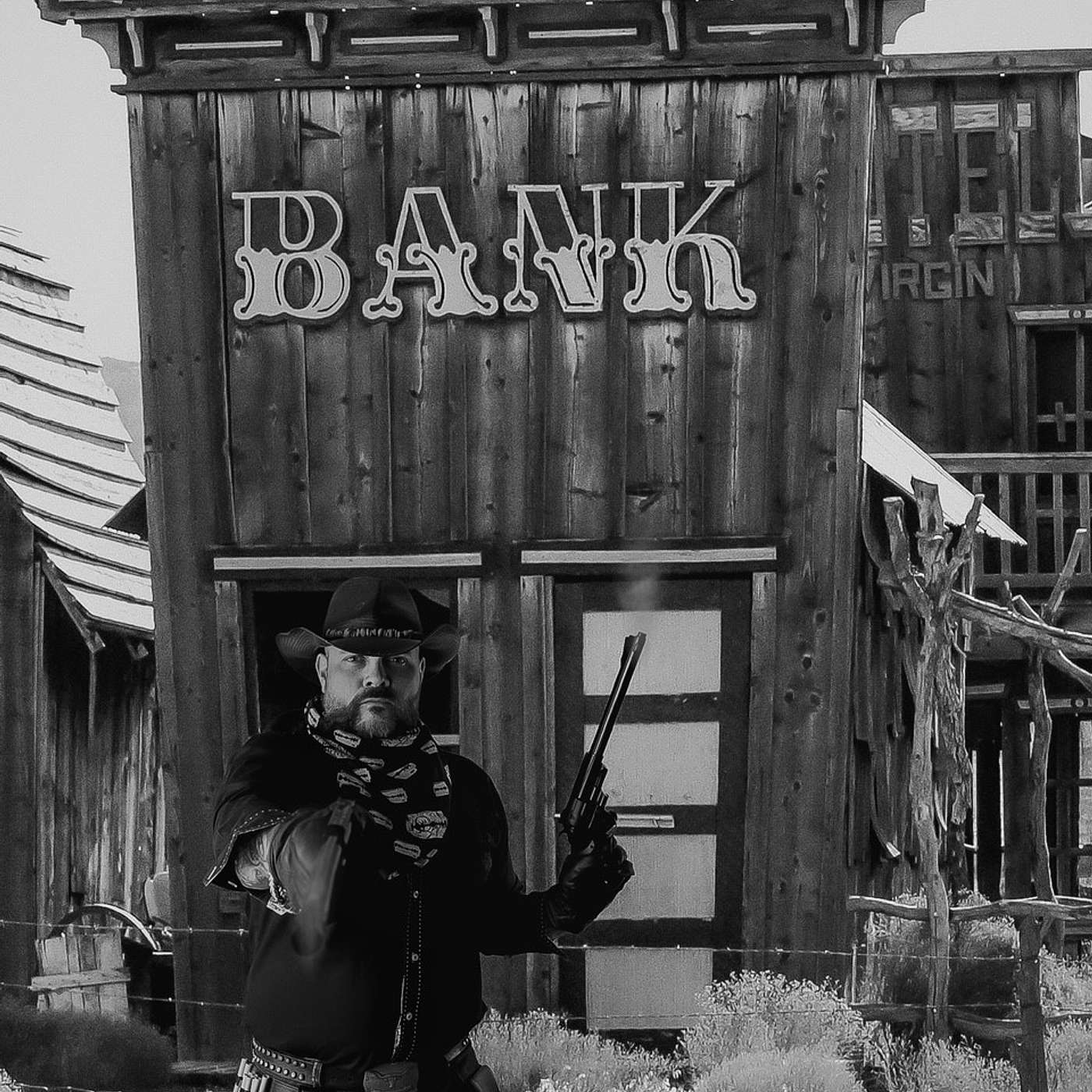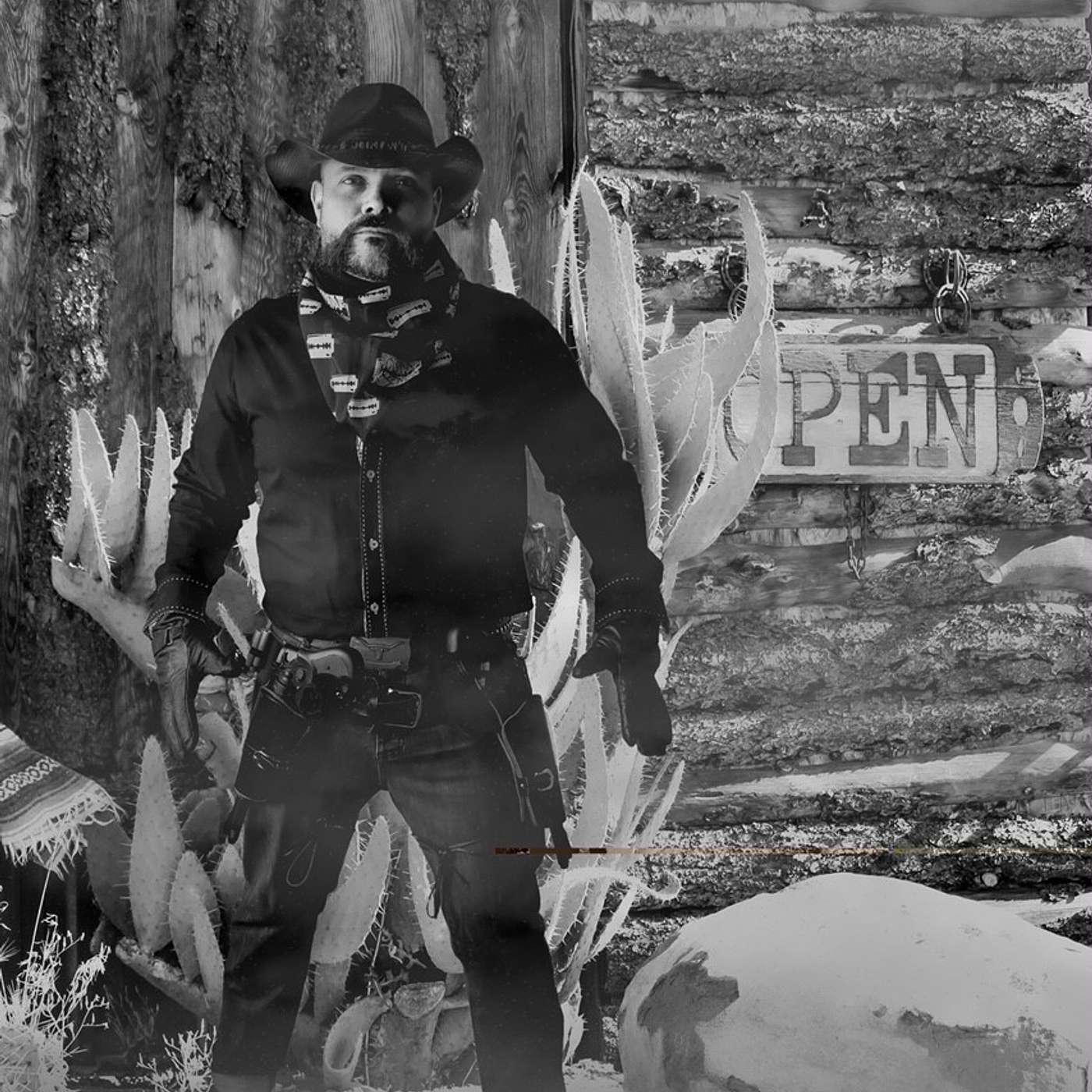
The New Fund Order
Deep from inside the City's shadows... author, speaker, NED and ex investment gatekeeper Jon 'JB' Beckett explores the Industry's taboo and hot topics. Dear Citizens of the People's Republic of Podcast, welcome! The New Fund Order is here; from existential risk to the human condition, a contrarian exploration of the Darkside, the Frontier and the Fringe of; Asset Management, Finance, Fintech, Mutual Funds and Macro. Bringing you news, views and interviews. Like a philosophy-economics mash up with science fiction, B-movies, Kung Fu films, cold war spy films, to Spaghetti Westerns... all delivered from the left-field with an Orwellian chill.. #newfundorder ALL VIEWS ARE INDEPENDENT. PLEASE check out my book website: https://www.blurb.co.uk/b/7337318-newfundorder-2-0 and Youtube channel https://www.youtube.com/channel/UClzN8gpccuVtdfW47TM_pPQ Season 2 ‘Fight Club’ is here ...
The New Fund Order
High Noon for Fund Risk: Once Upon a Time
Welcome to the New Fund Order. An Orwellian journey into the Darkside, the Frontier and the Fringe of Finance.
Is it 'High Noon' for existential risk, what does it mean to be an existential fund selector in a world of pandemics, cyber risk, climate crisis and digitalisation?
With a classic spaghetti western as a stage, we draw our six-shooters, with Jerome Tagger, and aim our sights on 'preventable surprises' and the forms of risk fund selectors face in an ever complex world. What risks should fund selectors worry about, what do we mean by black swans versus grey rhinos?
Fund selectors, advisers and investors have struggled to analyse fund risk in its many forms. It has a profound effect on asset allocation and assigning a risk budget for investors. Yet the industry remains stuck, as if on rail road tracks, in past risk, ex post, regression, volatility and past loss.. are fund selectors being rustled and herded like cattle by the industry?
Join me and Marshall Tagger as we take fire.. Revolvers loaded.. to the sounds of the West and the howls of the coyote! Once Upon a Time in the West..
Together with left-field opinion, global market news and latest views, direct from my dystopian bunker. In the Air, on the Ground, on the Street and around the corner of Debate. Watching, listening, in the Shadows and on your Airwaves. For Fund Selectors, distributors, wealth managers and investors.
In association with my sponsor Allianz Global Investors (AGI) one of the world's leading active managers. My thanks to my guest Jerome Tagger and Preventable Surprises.. and you dear listener.
Please LIKE, SHARE and SUBSCRIBE. Please leave a REVIEW and let me know what you think and what topics you would like for future episodes. Until then... stay safe and.. keep it left-field!!
That's 20 episodes, 20 Guests, every 2 weeks... each episode is 25 minutes!
Join the NFO Army Citizen, https://www.patreon.com/newfundorder
Left-field Finance.
#newfundorder
Credits;
George Orwell 'Nineteen-Eighty Four', Public Domain 1.0.
Audio clips: Public domain 1.0, Sergio Leone Productions 'Once Upon a Time in the West' (1969), Universal Music Publishing Ricordi srl (P) (1969) Sergio Leone Productions, 'L'Uomo Dell'Armonica', 'Addio A Cheyenne', composed by Ennio Morricone, Published by RCA Italiana S.p.A..
Speech extracts and sound effects by Archive.org and Soundbible.com. Creative Commons Attribution 3.0 and Public Domain 1.0.
All additional Music used by Silvermansound.com Attribution 4.0 International (CC BY 4.0)
Active is: Allianz Global Investors.
Disclaimer: This post contains affiliate links. If you make a purchase, I may receive a commission at no extra cost to you.
Computer 0:05
004
JB Beckett 0:10
Salutations Dear citizens as we peer into the new fund order to discover the immutable truth for asset management and wealth managers, the lowdown from the dark side the frontier and the fringe of asset management and fund research.
A podcast for wealth managers, fund selectors, distributors and investors. Bringing to you the People's Republic podcast on finance, in association with my sponsor, Allianz Global Investors, capturing the latest market news, views and interviews with leading minds in our industry.
Allianz Global Investors is one of the world's leading active managers.
JB Beckett 1:19
In today's podcast citizens, It's 'high noon' for fund risk. More importantly, this is all about fund selectors and allocators and investors understanding what existential risk means relative to their investment portfolios. In a world obsessed by past performance and ex post risk, we explore the difference of black swans versus grey rhinos, we explore existentialism and what does it mean to be an existential fund investor in today's age of global pandemics and climate risk.
JB Beckett 1:50
Other forms of existential risk, of course include big technology and we have to try and comprehend what the dark web and cyber security and also crypto finance means for our industry. Lastly, the other form of existentialism, of course, is one old populist uprising.. we've seen the rally of retail investors and war between retail investor and what they perceive to be the 'establishment' in Wall Street, and of course, the hedge fund industry. To help us in our existential journey.
I'm very pleased to announce our guest today is Jerome Tagger of Preventable Surprises, as well as co host and co founder of 'the breaking the fever' podcast. Prior to that he has been a board member and Senior Advisor for things like positive impact finance UNEP, and a senior advisor for public policy and strategy for the world benchmarking Alliance. Other past roles include chief Revenue Officer for impact alpha, Director of membership and operations for the global impact investing network, Chief Operating Officer for the United Nations principles for responsible investment UNPRI, and head of research or Eurosif.
Computer 2:57
Market news,
JB Beckett 2:58
Michele Walker at the economist runs a story was the pandemic a grey Rhino or our black swan. And of course, it was more predictable than people think noting that pandemics should encourage policymakers to pay more attention to other known but poorly managed risks. These include; rising inequality, climate change, and financial imbalances such as dangerous corporate debt levels and asset bubbles. Michele asked you to picture each of these obvious dangers as a two tonne green rhinoceros. With its horn pointed our way and its massive weight bearing down on us. They are visible and the impact can be foreseen.
Citywire reports that with Europe leading the way on ESG investing can the US make up grown under its new administration? While Europe accounts for 32.6% of Global Fund assets; its share of the $1.65 trillion invested in ESG stands at 81.3% or $1.3 trillion, versus the US' poultry 14%. At stake, in the increasingly zero sum business of asset management, reinforced forecast by PwC to reach up to $4.5 trillion by 2025.
Bloomberg reports that the ECB is said to be weighing up disclosing 'climate risk' in its bond programmes, this at ia time that carbon emissions data is showing a strong rebound after the 2020 pandemic lockdown.
Meanwhile, responsible investor reports this Swedish AP2 pension fund announced that half of his portfolio bonds and equities now surpass the Paris Climate accord.
Staying on the existential.. InfoSecurity magazine reports that homeworking might be putting firm's cybersecurity at risk. In a recent CTO survey, who expressed concerns that 80% of workforces, when working from home were using personal computers. And noteds that 50% of workforces were relying on their home Wi Fi networks,
As the House Financial Services Committee grilled several of the main characters in the GameStop saga, Know Techie reflects on Reddit and Robin Hood after GameStop. Legally Reddit cannot be held responsible for the activity of its users under a law called 'section 230'. This applies as much to other internet platforms as it does to Reddit. This law has been around since the start of the internet chat room activity; for Robin Hood is protected by the user agreement found on its website. This proclaims that the company 'may shut down trading at its discretion at any time without prior notification'.
British hedge fund manager Chris Hohn's pay pocket is something remarkable the billionaire hedge fund manager has been paid a record £343 million after a bumper year for his children's investment fund.
Lastly, Amanda white at top1000funds.com highlights a recent Mercer research that states the 'power of change that what, why and how of creating a diverse private market portfolio'. The composition of investment committees is the "most meaningful criteria" in assessing diversity, equity and inclusion in private market fund managers, according to Mercer,
And that's the end of the news tag #newfundorder and let me know what news stories I should be covering
Computer 5:58
Interview.
JB Beckett 5:59
And in these strange pandemic lockdown times, rest assured that all guests are calling in remotely.
Big thanks, Jerome for coming on the podcast show and welcome to the new fund order.
Jerome Tagger 6:14
JB It's a pleasure to be here.
JB Beckett 6:16
I'm not trying to build you up too much and put you under pressure, but my profession, wealth management, asset management, fund selection, I tend to find that things like existentialism existential risk, and this idea of preventable surprises, I don't know about how you felt, for me 2020 seemed like 'High Noon' when it came to existential risk to Jerome. And you know, I recall trying to speak to students and colleagues about existential risks back in 2019, and have to see with with little effect. So what is a 'preventable surprise'? And how does that apply to investing and mutual funds?
Jerome Tagger 6:54
Well, you know, 2020 certainly felt like a high noon in a in a large number of ways. And certainly my profession exists because your profession, as you described it has a hard time taking these these systemic and existential risks into account. Preventable surprises are things like the great financial crisis. And, and when you look at the aftermath of the great financial crisis, you see sort of a parsing of winners and losers, you know, there's the smart hedge fund people who had it figured out and made out like bandits and then there's everyone else that lost the things that our advisor and author Michelle Walker described as 'grey rhinos', the problems that you see looming and approaching slowly and don't do anything about.. climate change, obviously, is high on the agenda.. So is generally, you know, environmental degradation, biodiversity loss crisis. So ar global income inequalities and so are deep challenges to all our institutions, when we see the way things like Brexit, so things like the government transition here in the, in the US a mindset of the ponz has taken place, and how all of this is deeply integrated with financial markets. And that's the sort of thing that we exist for.
JB Beckett 8:12
I was thinking as well about how 'preventable' I guess the global pandemic was, but also what it told us about the resilience of I guess society and and the capital model or, or indeed, the lack of?
Jerome Tagger 8:26
You know, you've got enough of a track record now that you can say it is time to proactively do something about this. And that means adapting economic systems. That means changing the way we use land, for example, and share our space with you know, bats and other species that carry these viruses and potentially transmit them to humans. That's the learning. That's the opportunity. And it's, it's now, if people want to have another pandemic a few years down the track, the best solution is to do nothing.
JB Beckett 8:56
You mentioned this idea of 'grey rhinos' and probably one of the most informative books for me after the great financial crisis was Nassim Taleb's 'Black Swan'. But the reason I had so much rage, I think, at the time and very much towards other fund selectors to fund managers, etc.. was I think they were guilty and continue to be guilty or focusing myopically on on micro data. Right. So typically, that's historical. Sometimes it's some sort of forward looking estimation. But I think they fundamentally underestimate the big risks time and time again, is that your feeling as well?
Jerome Tagger 9:33
I think so. I mean, first of all, I don't want to make broad assumptions about everyone in the in the profession,
JB Beckett 9:39
I'll do that..
Jerome Tagger 9:40
But there are some, but but there are some clear trends, you know, and.. the famous quote I keep going back to from from Chuck Prince, the then CEO of Citi in 2007, about you know, 'when the music stops in terms of liquidity, things will be complicated, but as long as the music is playing, you've got to Get up and dance'. I actually used this in a blog three weeks ago about the US Capitol.
Yeah, I mean, I think there's, there's a bit of a short term vision, there's probably a need to shift from the very analytical thinking that we're all taught in business schools, to things that are more ecological and systemic. I mean, look, I admire Nassim Taleb, just as much. But I have concerns with people using this as an argument to not have done anything. And that's where that's where the 'grey rhino' the notion of, well, we actually knew this. Many of us did, and could have done something could have done many things, and just let things slide and happen. That gives us a bit more of a sense of opportunity and agency.
You know, FT just ran a story comparing the Reddit to the demise of the rebel Clarence Saunders and his Piggly Wiggly stores company from the 1920s and 100 years on, does the industry Get it? And it does feel like a almost like a division between the old ways of the of the "educated" versus the rebellion of the of the "uneducated"?
I mean, look, you're speaking to some very deep divisions in society today, and in various societies, certainly, in Western Europe and North America. And I think sovereignty and popular sovereignty is important. But we're clearly seeing some tensions here that need resolving.
JB Beckett 11:30
Right,
Jerome Tagger 11:30
Right. And I think to me, GameStop captures that it's sort of fascinating to go into the Reddit threads and read the comments from a lot of people who were on there, you know, and it's more anecdotal than then statistical or scientific research at this point. But it's amazing how many people were involved, or got involved in this and started playing 'stock market', just because it was an opportunity for them to express 'power', we going back to the big picture, we the people who are in asset management, in finance or around it, and generally, frankly, in positions of privilege. That's a challenge to how we operate. And we have to think about that,
JB Beckett 12:19
Looking at that the whole GameStop situation from this side of the hedge fund managers. Do you think that that just the whole idea of hedge funds, shorting stocks like GameStop? Is that essentially quite erosive to our economy?
Jerome Tagger 12:36
You know, I almost want to turn the question back to you. Because you probably know this much better than I do. I mean, I don't, in principle, have any particular issue with the idea of taking, you know, negative market bets basically, on companies and other things? What's complicated is when it gets destabilising,
JB Beckett 13:01
right,
Jerome Tagger 13:01
To the companies, and to the economies around them, you could put this in a broad bucket of well, you know, 'what's investment and what is speculation?' And, you know, you can take this back to currency, speculation in the in the 90s, and so on. And you can think specifically about, about shorting stocks, but then you see that it's never just shorting. It's the accumulation, it's the front running. It's the fact that the benefits from those sort of shorting opportunities also captured by a minority of investors. I mean, basically, if you're not a sophisticated investor, to a very large degree, the bigger bets like this are not accessible to you, because you can't put your money in the hedge funds, you know, and so you can, you can do you sort of own shorts yourself, but that does take a degree of 'sophistication' in the first place. So, it just speaks to a lot of bigger markets, imbalances and challenges that, you know, again, I would ask you for another spur of expertise on how to solve them, but clearly there's something that needs to be solved.
It's power and influence. Right. And you, you've commented previously on another form of power and influence, and of course, that's 'corporate lobbying', you know, does that expose politics? Does it expose a divide between the left and the right and does that expose a 1% and everyone else is this abuses of power and influence?
You know, it's, it's one big puzzle. It exposes a lot of things, it challenges a lot of things and it needs to be rejigged. That's, that's basically how I would think about it. You know, the reason we as an organisation started looking at corporate policy capture.. It's not necessarily that we think that your companies don't matter and should have an influence and and so on so forth, it is just that when we look at the sort of issues that investors that actually think long term and think about climate and other issues like this, the way.. the way they approach them, tends to be very much looking at the way companies behave in their operations, in their communications, and so on, but very little on the policy and political side and on the lobbying and influence side of things. And that's an issue because it's sort of like looking at the challenges with a blinder in front of one eye. And, and so we've been wanting to broaden the picture and broaden the landscape that investors look at when they want to address these sustainability issues.
They would, when they, you know, say, 'listen, we need to have a hand in mitigating climate change', or, you know, the biodiversity loss crisis or any of these things. It's not just, 'let's look at corporate behaviour', with our employees and with our operations and our products and so on, it's also looking at how they behave in the policy space. And often that's at odds, you know, and that's part of the issue. So that's our lens into it.
You take another step into this, you sort of realise, there's lots of organisations that look at this from the OECD to many nonprofits. How business influence plays out in the hallways of Brussels, Westminster, in 'Capitol' in the in the US and so on. And it is clear, they're obviously not the only ones trying to have an influence that's certain, but it is clear that the, the game is tilted so much, so much in a way where entrenched interests are in a position to control the way policy is made. But you've got a whole system that just isn't delivering today policies that work to address some of these bigger, existential or systemic challenges. And that is really the issue.
JB Beckett 17:23
I mean, right. And now that 'grey rhino' is getting ever closer to the point where no started to see the white, the whites of their eyes, and are you just left exasperated by those corporate lobbyists, by those bureaucrats, by the government, by the industry, in terms of how quickly they seem to be able to respond to COVID-19. But yet continue to show inertia when it comes to climate risk?
Jerome Tagger 17:50
Am I feeling exasperated? Sometimes? Not all the time. I mean, there's certainly there's frustrations and challenges. And that's why I do the job that I do as opposed to another job. But as a system, it is dysfunction and captured. So yes, we have seen a response and a prompt response to COVID-19. And hopefully, that is a learning opportunity, at least for one or two generations. What's clear, also with COVID, is that the trade offs were very immediate. So that's that's certainly not a call to inaction. It's a call to say, you know, wake up to the fact that this is one alert and a very acute manifestation of what's other existential risk, other systemic challenges are bringing down the track. One of the things they often resort to is to say, Well, hold on, yes, we have an issue, we recognise the issue, but we need more data. And, look, we all always need more data, better data may leads to better decision if it's the right data. But so that's fine. But we don't have the luxury of waiting for good data. I mean, the whole science of decision making, the whole value of decision making is that you don't wait for others to do it for you. Right.
JB Beckett 19:15
Lots of noise around the taskforce for climate related disclosures (TCFD) that is seen eyes, I guess, I guess, the 'white knight' of you know, climate analysis for for finance. But if you were an ESG investor today, what is the first question you would ask of the fund managers before you decide to invest your money?
Jerome Tagger 19:35
in those transformation terms? How they go to the companies and say, your business needs to transform over the next decade or so to address issues take these upward climates to address the urgency, the urgent need to reduce emissions? What is your plan to go about that? How are you doing this? And I think, I think you as an investor, that's the sort of question I would ask for managers. And I would not satisfy myself with 'wishy washy' answers.
JB Beckett 20:08
Right.
Jerome Tagger 20:09
Of which there's a lot... look, we have a long track records. You know, 'it's in our DNA', I think there's nothing that I hate more than the expression it is in our DNA.
JB Beckett 20:18
I'm glad it's not just me, right, that makes me so mad. I'm like, Really? I don't recall you saying that three years ago. It's, you know, fund selectors, unfortunately, then become very cynical by this notion of 'greenwashing'.
But before you go, I've been asking every guest to answer a quick rapid fire round of 10 questions, now this is the fun bit and it's it's all about a gut feel, it's one answer. And are you ready?
Jerome Tagger 20:47
I will never be but go ahead.
JB Beckett 20:51
Great stuff. Okay. Question number one, Bull or Bear?
Jerome Tagger 20:59
Bull
JB Beckett 21:00
Bogle or Buffett?
Jerome Tagger 21:06
That's a terrible choice. Do I need to answer?
JB Beckett 21:13
Yeah, absolutely. Yup.
Jerome Tagger 21:14
Okay, Bogle.. cautiously.
JB Beckett 21:16
This one should be easier. Profit or Planet?
Jerome Tagger 21:20
Planet.
JB Beckett 21:21
This one might be slightly trickier. Divest or Engage?
Jerome Tagger 21:27
Engage.. not exclusively,
JB Beckett 21:28
Lower Cost or Better Value?
Jerome Tagger 21:32
I think it's in the eye of the beholder. As I will respond as a retail investor Lower Cost
JB Beckett 21:37
Supertankers or boutiques?
Jerome Tagger 21:42
Boutiques.
JB Beckett 21:43
There we go.
Next one, Star Managers or Team Players?
Jerome Tagger 21:49
Team Players.
JB Beckett 21:52
Next one gets quite interesting Public or Private?
Jerome Tagger 21:59
Public.. today.
JB Beckett 22:01
Next one is question number nine, High Growth or Stable Income?
Jerome Tagger 22:04
Stable Income would be nice.
JB Beckett 22:07
And my favourite question, question number 10.
The one that everyone loves to hate, Socialism or Free Markets?
Jerome Tagger 22:19
All right, I can't answer this question. Because everybody that hears the word 'socialism' thinks about them in different way and everybody that hears 'free markets', think about them in different way. I think there is a solid middle ground that balances. You know what, you know, I don't think you need to hear what I think but this is not the answer you're looking for. So you're right, this is the question that everyone hates. So my answer is 'change the paradigm'..
Computer 22:48
Bonus round.
JB Beckett 22:51
Metropolis or countryside?
Jerome Tagger 22:59
Alright.., metropolis.
JB Beckett 23:01
That signals the end of the questions. You have survived the new fund order Jerome Tagger, just want to say, you know, thanks very much for coming on the show.
Jerome Tagger 23:11
Thanks for having me. And you know, more than anything, I think of this as an opportunity to engage your audience. So you know, anyone who's listening, contact me if you want to discuss these things.
JB Beckett 23:22
Great stuff. Thanks very much, Jerome
Jerome Tagger 23:24
Thank you.
JB Beckett 23:26
Please don't forget to like and share and subscribe, you know click the subscribe button. First, every two weeks with a new guest. Stay tuned.
So what do we think Dear citizens? How do you comprehend and analyse risk in your fund selection, in your portfolios? Drop me some comments and let me know how you approach risk.
In my 'Triage of Risk' lecture that I give to colleagues and students, I talk about how risk lectures and textbooks are typically dull, they set the tone for those entering the risk industry and that carries through, typically our industry likes to try and suggest three forms of classical risk being a 'market-economic, idiosyncratic and operational' which is useful for teaching but not necessarily useful for selecting funds. Now others may suggest to you 'risk' as being 'leverage' or 'liquidity', perhaps even 'human behaviour'. Now these are more useful and definitely better ways to think about risk. But again, no these are symptoms and the sources of risk.
So when it comes to risk analysis, what then are the three types of risk as I see them? What are my triage? Traditionally, we have look-back risk measures, otherwise known as 'ex post'. And this will include things like volatility and past loss, we have 'ex ante' which is an attempt to try and look forward to estimate the prevailing level of risk in a portfolio. And of course, we have what we're going to discuss today 'existential' risk, and these are the risks we should worry about, but we don't tend to until it's too late. They are the unknowns both known and unknown. They are the black swans and the grey rhinos often appearing too abstract until they materialise.. once upon a time in finance, Risk... the most exciting dullest subject..
So citizens, I guess my call to action to you today is to think more broadly in terms of your risk framework, combine those ex post with ex ante, and also set yourself a risk budget for existential risk, right. So this idea of what could possibly happen. In doing so it will help you build resilience into the portfolios for your clients and for yourselves. And that means having a distinct risk budget for climate risk. Having a distinct budget for unusual investor herding patterns and behaviours. It means having a risk budget for cyber risk.. until finance is able to comprehend 'risk' out with the narrow bounds of the textbooks, then I'm afraid Dear citizens that we will never learn from past mistakes and we will never build resilience into our portfolios. We just wait for the next event to happen..
Big thanks to you, dear listener for tuning in. Brought to you by my sponsor, Allianz Global Investors. and a warm thanks to today's guest. Legally, I am compelled to remind everyone that all views of this podcast are of courswe independent and do not belong to any affiliation or organisation. Just in case that was in doubt..
Tune in for the next podcast every two weeks from..
Computer 27:25
the new fund order.
JB Beckett 27:27
Please subscribe, share, like and comment. Let me know what you think and what you'd like covered in future episodes. Until then, stay safe and keep it left field!
Clip 27:39
(End Sequence)
Transcribed by https://otter.ai






